
Breadcrumbs navigation
The best books on the politics of war
This article was originally published on Shepherd, a book discovery website where authors and experts share their favourite books. Try their bookshelf on international relations or politics to browse a wide range of recommended books. We will shortly be embarking on a partnership with Shepherd and you can read a call for expressions of interest. The deadline is 31 January 2024.
Who am I?
I take great pride in having somehow turned a passion for visiting presidential libraries into an academic career. I’ve now conducted extensive research at eight of them, and have future projects lined up to get me to the rest. This experience means I can and frequently do ruin family gatherings by challenging distant relations to quizzes about obscure details involving presidential pets. But it has also left me well-placed to write a number of articles and books exploring how domestic politics shapes the development and execution of U.S. foreign policy. I’ve done this while affiliated with the University of Oxford and, more recently, at City, University of London.
I wrote...
War on the Ballot: How the Election Cycle Shapes Presidential Decision-Making in War
By Andrew Payne
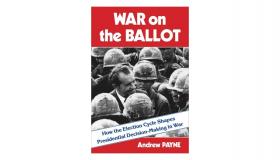
What is my book about?
The president of the United States is at once holder of the highest elected office and commander-in-chief of the armed forces. But how do presidents balance these competing responsibilities during an ongoing war? War on the Ballot examines how electoral politics shaped presidential decisions about military and diplomatic strategy during the wars in Korea, Vietnam, and Iraq. Drawing on a wealth of declassified documents and interviews with senior officials and military officers, it reveals the surprisingly large role played by political considerations during these conflicts. In each case, the exigencies of the domestic political calendar led presidents to miss crucial opportunities to limit the human and financial costs of the war, gain strategic advantage, and sue for peace.
The books I picked & why
America's Cold War: The Politics of Insecurity
By Campbell Craig, Fredrik Logevall
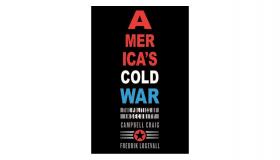
Why did I love this book?
This was the book that got me hooked on the study of U.S. foreign policy.
I vividly remember debating the grammatical merits of the word “intermestic” with my undergraduate adviser. (Full disclosure: he was a skeptic; I was in favour.) But we both agreed that the term it introduced to describe the connection between the international and domestic dimensions of policy was fundamentally apt.
This remains my go-to book to get up to speed on the domestic politics of any major foreign policy challenge of the Cold War period. And it should be yours, too.
Arsenal of Democracy: The Politics of National Security--From World War II to the War on Terrorism
By Julian E Zelizer
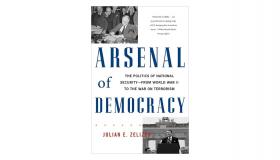
Why did I love this book?
This book expands the horizon to include coverage of many of the crises and conflicts of the post-Cold War era. In doing so, it draws on an unusually rich range of primary sources for a book of this scope.
Its treatment of the role played by Congress is particularly notable, which should perhaps be no surprise given the author’s expertise in chronicling several of the major legislative battles in U.S. history. Somehow still coming in around the 500-page mark, the book’s briskly paced narrative makes it possible to devour it in one sitting. Indeed, you might find it hard not to.
Selling the Korean War: Propaganda, Politics, and Public Opinion in the United States, 1950-1953
By Steven Casey
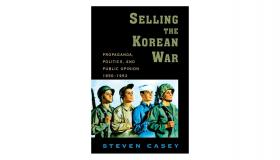
Why did I love this book?
If you want to go a little deeper, you can’t do much better than this outstanding study of how Harry Truman and Dwight Eisenhower sought to sustain public support for the Korean War.
Written by a historian who knows his sources like the back of his hands, this book is jam-packed with evidence of the ways in which presidents try to control the narrative about an ongoing war. And beyond its impressive use of archival materials, it also challenges the conventional wisdom about a president’s ability to lead public opinion using the “bully pulpit.”
Presidents can and do try to do that. But the Korean case illuminates the unique challenges of selling a limited war, in which the administration struggled to calibrate its mobilization campaign with the complex politics of waging war.
The Insiders' Game: How Elites Make War and Peace
By Elizabeth N Saunders
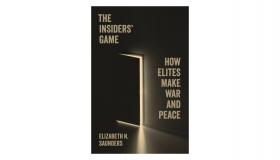
Why did I love this book?
Unlike the other recommendations on my list, this is a work of political science. But the qualitative components of this text rival that of any work of history.
In fact, it was this author’s first book that provided the model for my own, blending deeply researched case studies with conceptual innovations in the study of foreign policy decision-making. Her latest contribution, The Insiders’ Game, will set the agenda for the next generation of scholarship on the politics of war.
It reminds us that the public is not the only audience that leaders need to worry about when making decisions to initiate, escalate, or conclude a war. Maintaining the support of advisers, legislators, and military officials is also essential. As a result, it is often the bargains struck with these small groups of political elites that determine how democratic leaders wage war.
Command: The Politics of Military Operations from Korea to Ukraine
By Lawrence Freedman
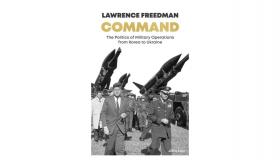
Why did I love this book?
Every book this author produces feels like a magnum opus. In this latest tour de force, Freedman surveys decades of history across several continents to shed light on the deeply intertwined relationship between the development of military strategy and the politics of command.
Thanks to this vast scope, the case studies in this book provide portraits of a wonderfully eclectic cast of characters, demonstrating how civilian leaders and military officials battled over authority, autonomy, and resources in a wide range of contexts.
Photo by Iñaki del Olmo on Unsplash


